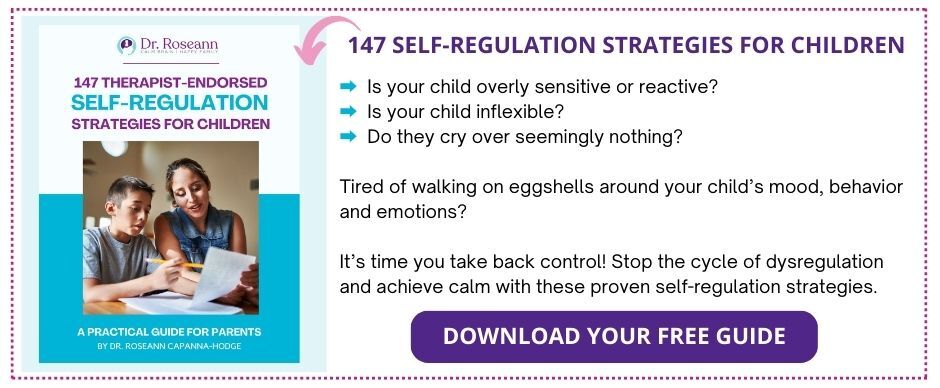In our previous episodes, we’ve talked about how our kids are not doing these things on purpose. Rather, their brain is acting in a subconscious manner causing them to behave that way.
Lucky for you, we’re going to discuss parenting and over-reactive kids in today’s episode because if you don’t have your A game on, you’re in deep trouble.
What is emotional regulation and why is it important?
Emotional regulation is the foundation of everything. It is a person’s ability to manage their own emotional state. In our other episodes, we have been emphasizing the importance of regulating ourselves and our nervous system.
Thus, if our kids are constantly in a sympathetic, dominant, activated state, it’s going to be quite a challenge making them learn how to regulate. It is understandable that there are going to be moments when we’ll struggle managing our own emotions even as adults but we make use of our learnings about regulation to calm ourselves.
What are signs of emotional dysregulation?
Usually, when our kids are overreacting to situations, their brain – particularly in those areas related to emotions – are overly sensitive. I’ve done many QEEG brain maps and it’s been such a great tool for me because it provides us with clear indications of the communication between and among the different areas of the brain.
You’ll see that they really struggle with the information coming to them. Through the help of our Brain Behavior Reset Program, we’ve helped many clients calm their brain and we’ve taught them how to self-regulate as well. There are many solutions available for you. You can join our Natural Parenting Solutions group to know more.
As we’ve said, kids in a dysregulated brain state tend to be overly sensitive and over-reactive which makes parenting a lot harder. Being in a dysregulated state, kids are often more easily sad and moody. We have to break this cycle because the more the behavior happens, the more likely the nervous system is to repeat it automatically.

When we’re anxious, we can be more reactive.
When we are anxious, we can be more reactive. Kids these days are diagnosed with oppositinoal defiant disorder and it’s often because they're moody and anxious to begin with. They often experience body pains and other health issues because their internal stress is very high.
These kids also have a high rate of sensory processing disorder and sensory issues. It is essential to approach these kids with compassion, giving them support and direction that takes into account their emotional and sensory needs.
They also tend to be sensitive to criticism and can’t take feedback very well. Due to their more intense emotional responses and sensitivity, they may be more likely to become overwhelmed or defensive while receiving criticism.
Over emotional kids tend to be overly empathetic.
Over-emotional kids tend to be overly empathetic. They just love being able to help others out. However, they don’t know how to properly deal with the sensations that are coming which is why they end up being more reactive at home.
They are also considered inward thinkers not connecting with others as much as they should. Due to their heightened sensitivity, some over-reactive kids may struggle with social interactions and might find it overwhelming to explore more but they can develop social skills and meaningful connections with the right help and understanding.
Kids with a high IQ who have a clinical diagnosis are so aware of their environment that they get scared of it. This is because they often have a heightened ability to perceive and process information. They may struggle with coping mechanisms and have difficulty managing their fears or anxieties.
As parents, we must keep in mind that our kids aren’t doing these on purpose. As much as possible, create a healthy environment for you and your kids where they can regulate themselves when things get a little bit overwhelming.
It’s also important to foster open and honest communication and help them develop effective coping strategies to manage their emotional reactions. And of course, it’s best to consult with professionals to provide you and your kid guidance along the way.
For more information, check out our blog on Overemotional Child Symptoms and our Dysregulated Kids Guide.
Links and Resources:
➡️ Join our FREE Natural Parenting Community to receive science-backed resources for your child and family. Join here.
➡️ Get help from Dr. Roseann and her team. Apply here.
➡️ “Is it ADHD or something else?” Take the quiz.








